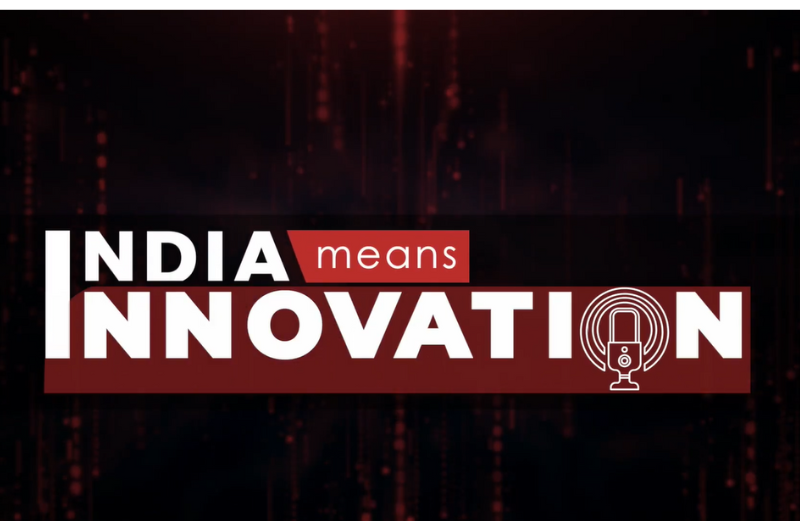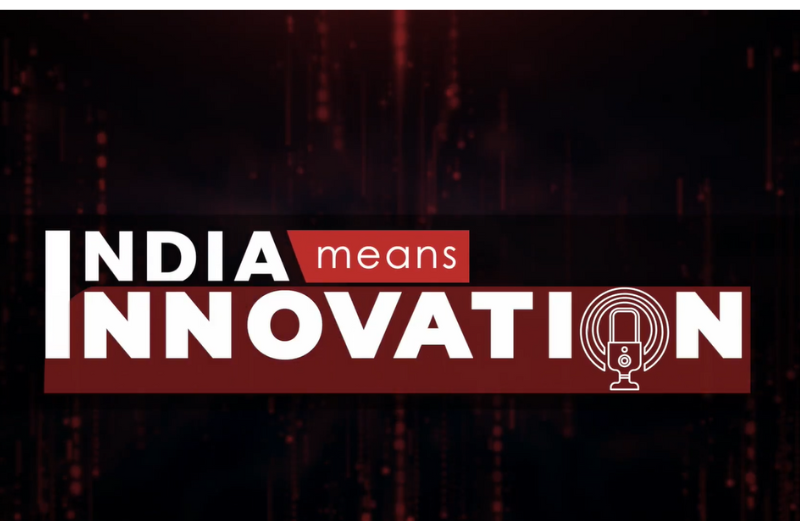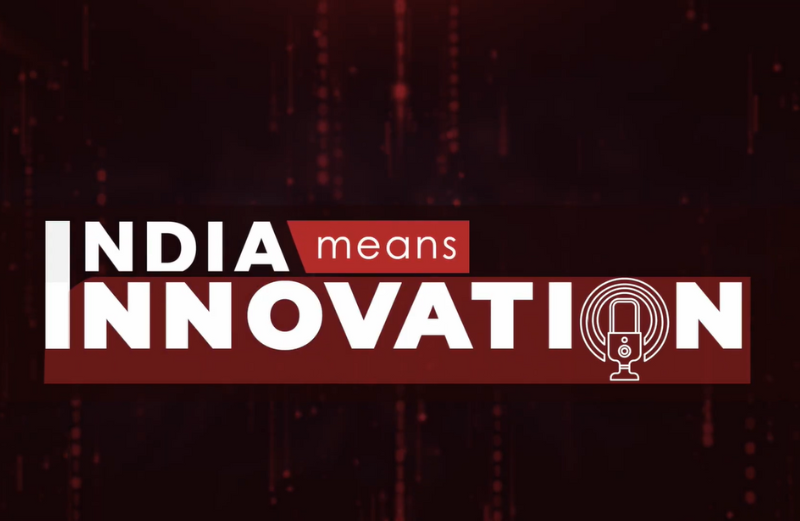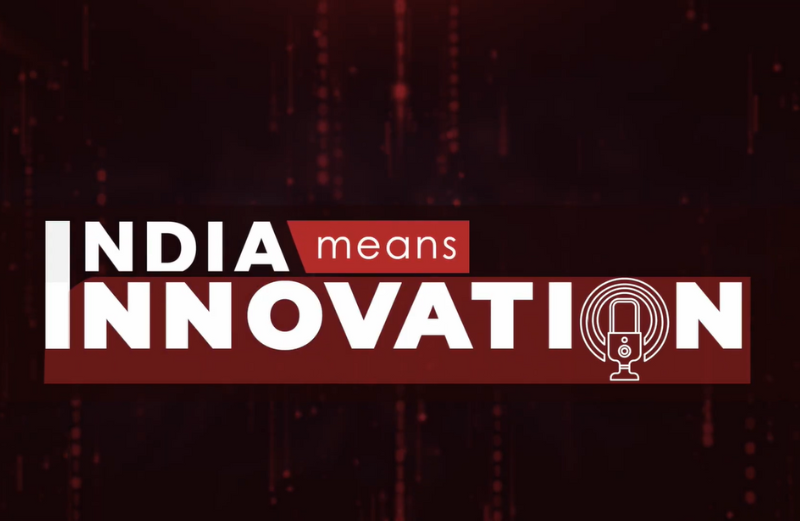Related Voices

Johnson Controls India - "The Next Frontier in Sustainability: AI-Powered Smart Infrastructure"
Buildings account for 40% of global greenhouse-gas emissions; imagine the change when they go smart! We’re back with BCG and Nasscom’s next episode of ‘India Means Innovation’ podcast with Vijay Sankaran, Global VP & Chief Digital and Information Officer at Johnson Controls and Snehil Gambhir, Partner & Director at BCG.

MedTech innovation for Real-World Impact: Bosch Vivaray Story
In this episode of the India Means Innovation podcast, Murali Mohan, Program Director – Business Domain Healthcare at Bosch Global Software Technologies, joins Aditya Nath Jha to discuss Bosch’s approach to healthcare innovation and how their India-based team is developing impactful MedTech solutions for the world.

Guarding every heartbeat with the Next-Generation Myocardial Protection System
In this episode, Thiruvazh Marban, Senior Technology Leader from HCLTech’s MedTech business, joins Aditya Nath Jha to share the story behind the Myocardial Protection System.

Grassroot innovation enabling 4G/5G services on ultra-low-cost feature phones
In this episode of India means Innovation, Amar Rao, Engineering Technical Manager at Quest Global joins Aditya Nath Jha, to discuss how their innovation at the bottom of the pyramid is helping deliver 4G/5G services on ultra-low-cost feature phones (costing less than $15) to bridge the digital divide for tens of millions.

Reimagining AI in Smartphones: The Galaxy AI Way |Mohan Rao Goli | Samsung R&D Institute
In this episode of India Means Innovation podcast, Mohan Rao Goli, Corporate Vice President and Managing Director of SRI-B, in conversation with Aditya Nath Jha, discusses the groundbreaking innovation and design of Galaxy AI.

Why Global Businesses Are Betting Big on India: Nasscom Leaders on GCCs, Innovation, and Growth
Sindhu Gangadharan, Chairperson of Nasscom and MD of SAP Labs India, along with Rajesh Nambiar, President of Nasscom, delve into India’s emergence as a trusted innovation partner for the world. They highlight the increasing strategic importance of Global Capability Centres (GCCs) in shaping global tech advancements and explore why international businesses are intensifying their investments and focus on India as a key hub for innovation and growth.

Accelerating automotive design simulations from days to minutes using quantum & AI | QpiAI
Nasscom India Means Innovation Case Study Series features complex and transformative technological breakthroughs made by India-based teams, redefining global engineering possibilities.
Case: QpiAI – Quantum-AI Powered Automotive Design Optimization In this episode, Dr. Nagendra Nagaraja, Founder & CEO of QPiAI, presents a first-of-its-kind innovation integrating Quantum Computing and AI to dramatically accelerate digital simulation — a critical enabler of SDx and next-gen engineering, while accelerating product cycles.

Revolutionizing the Software Defined Vehicles: EV Charging System | Rajendra Chougule | TCS
In this episode of #IndiaMeansInnovation podcast, Rajendra Chougule, Head of Automotive CoE – IoT & Digital Engineering at TCS, breaks down the story behind a game-changing innovation: a “3-in-1 EV Charging Platform” — a compact, scalable design that integrates multiple functions into a single enclosure to support different types of electric vehicles.

Code on Wheels! Driving the Future of Cars | KPIT’s Dr. Manaswini Rath
The future of mobility is here — and it’s built on code. In this episode of India Means Innovation, Dr. Manaswini Rath, Senior Vice President Software Defined Vehicles SDV, Autonomous Driving, Chassis Engineering at KPIT Technologies

AI Won’t Replace You — But Someone Using It Will | Noshir Kaka On Future-Proofing Careers
In this eye-opening conversation, Noshir Kaka, Senior Partner at McKinsey & Company, breaks down how AI is reshaping careers, industries, and leadership itself. Hosted by Govindraj Ethiraj, this episode of The Core Report Special Edition explores what it truly means to be future-proof in the age of artificial intelligence.

India’s AI Revolution: How Frugal Innovation Is Powering Global Impact | C Vijayakumar, HCLTech
In this special edition of Nasscom Conversation, Govindraj Ethiraj speaks with C Vijayakumar, CEO & MD of HCLTech, about how Generative AI is reshaping the future of business, software development, and human potential. From frugal innovation to global AI leadership, this conversation dives into how India is shaping the future of enterprise transformation with real-world impact.

Can AI Become Conscious? Bridging the Human-Machine Gap | Future of AI Explained
As AI rapidly advances, the boundary between machine intelligence and human consciousness is growing thinner. Will AI ever achieve true self-awareness, or is it limited to complex pattern recognition? How do emotions, intuition, and human experience create a gap that machines can't cross? Join us as we dive deep into the future of AI, consciousness, and what truly makes us human with renowned neuroscientist and author Professor Anil Seth.










